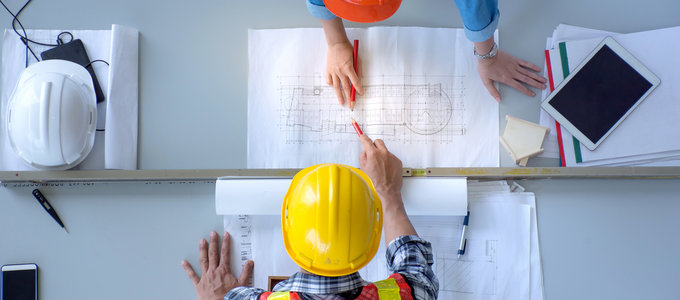The Building Industry: What is a JCT Contract ?

What is a JCT Contract ?
The Joint Contracts Tribunal (“JCT”) produces standard forms of building contracts. The JCT family of contracts are some of the most widely used in the building industry and are relied upon when handling a construction dispute. Although similar, there are some differences between the various JCT standard forms. This article refers to the JCT Design and Build Sub-Contract Agreement and Conditions 2016.
JCT contracts facilitate the process of delivering a building project. In simple terms they set out the responsibilities of all the parties within the process and their obligations to each other. In this way it is then clear what work needs to be done, who is doing it, when they are doing it by and for how much.
Dispute Resolution Options
The contract also provides the following procedures available for resolving disputes:
-
Negotiation
-
Mediation
-
Adjudication
-
Arbitration
-
Legal proceedings
Negotiation is explained within the contract and describes the process where the parties nominated in the Sub-Contract Particulars will try to resolve any matter that could potentially arise as a dispute. Direct negotiation gives power to the parties to reach an amicable decision that works for them. Negotiation is one of the simplest ways to resolve a construction dispute
Mediation is an informal process in which a neutral third party assists the parties in finding an acceptable settlement and bringing the dispute to an end. Mediation can be successful in preserving a relationship between both parties as there must be a mutual understanding for this resolution method to work. Reaching a decision outside of court, for example, also means both parties are more likely to be satisfied with the outcome and the costs implications.
Mediation may be used at any time during the construction project, whether that’s after completion, or at any other time up to a hearing. The mediator will normally be appointed by both parties and will act as a facilitator to assist with communication between the parties.
Adjudication is a cost-effective and efficient way to settle a JCT contract dispute. The JCT contract incorporates the provisions of the Scheme for Construction Contracts and either party has a right to refer a dispute to adjudication at any time.
Unlike a mediator who is impartial and will not make any judgements, the role of an adjudicator is to make a binding decision based on the submissions of both parties. This decision should generally be made within 28 days of the referral and is binding unless a conclusion is reached through agreement, arbitration, or legal proceedings.
The JCT contract details how the parties can commence the adjudication process and who the adjudicator will be. The adjudicator will either be identified within the contract or will be chosen by the nominated body named in the Sub-Contract Particulars.
Settling a dispute through adjudication can ensure a construction project is not put on hold while a resolution is found.
Arbitration is a process whereby disputes are settled by a private tribunal. All evidence and submissions will be considered the person appointed to make the decision (known as the arbitrator).
A notice will be served from one party to the other to begin this process. This requires an agreement on the appointment of an impartial third party “the arbitrator”. Both parties must agree on the arbitrator, however, if this decision is not agreed within the 14 days following the notice, the arbitrator can be appointed on the application of either party by the person identified in the Sub-Contract particulars.
The arbitrator will decide the dispute and their decision (also referred to as an award) is legally binding and enforceable.
If construction disputes are to be handled using this resolution method, it must be stated in Article 5 of the Agreement and the relevant clauses. By doing so, the parties avoid using legal proceedings to resolve any disputes that may arise.
Legal Proceedings - Any disputes which are subject legal proceedings are generally dealt with by the Technology and Construction Court (TCC). A Judge can deal with complicated issues, and the decision is legally binding and enforceable. You will normally be required to comply with the Pre-action Protocol for Construction and Engineering Disputes before you can commence legal proceedings.
It’s important to note that if there is an arbitration clause within the contract and both parties have agreed to resolve a dispute via this procedure, then legal proceedings are not an option.
It is therefore extremely important that the provisions in the JCT contract are considered very carefully from the outset, as this could later determine what resolution methods are available.
Lawson-West Solicitors - Commercial Dispute Resolution team:
From our offices in Leicester and Market Harborough, our team helps business owners and directors all over Leicestershire and the surrounding regions. Our commercial business and litigation clients include those in Leicester, Coventry, Nottingham, Derby, Northampton, Rugby and London, Birmingham and Cambridge.
You will find our Law Society-qualified solicitors, lawyers and team members knowledgeable, helpful and level-headed, committed to providing you with the best possible outcome for your commercial dispute or litigation matter.
Contact Us.
View all


